The 'Healthy' Foods Nutritionists Avoid - And The 'Unhealthy' Ones They Adore
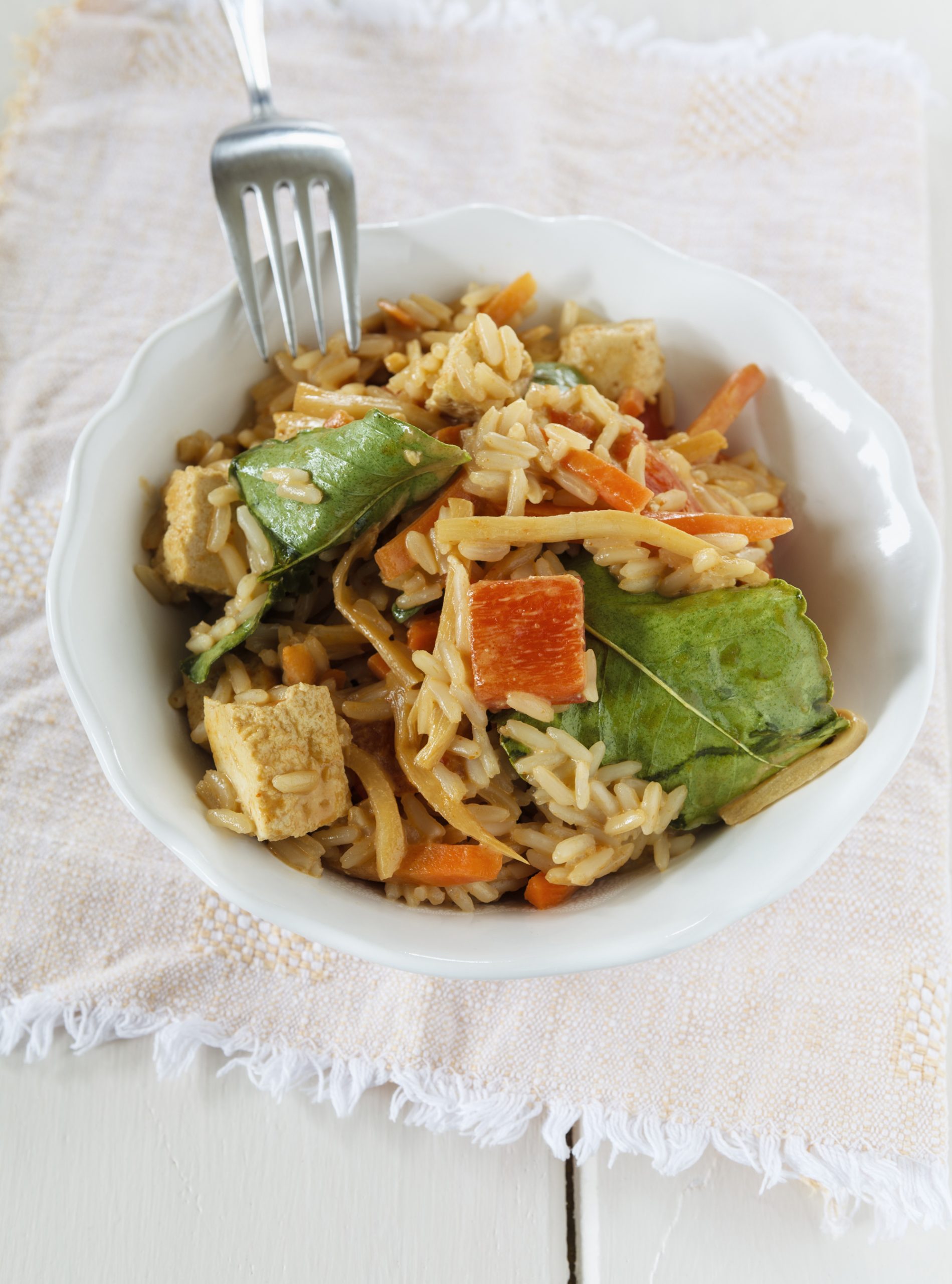
If you've resolved to lose weight, get fit or simply eat more healthily this year, you might be - somewhat unhappily - resigning yourself to a life of raw food energy balls, fat-free yoghurts and gluten-free cereal bars, and a plate devoid of pizza. But not so fast. We've spoken to five registered nutritionists to find out whether they really live off ‘health' foods alone - and the results just might surprise you...
"All foods are OK," Charlotte Stirling-Reed ofSR Nutritiontells us. "It's about moderation and context - not eating too much of anything and keeping your intake of ‘empty calories' to a minimum." Public health nutritionistNicola Burgher, who describes herself as a "liberal nutritionist", agrees, saying, "I'm pretty realistic and balanced in my approach to food. I don't believe there are bad foods as such, but I do believe there is such a thing as a bad diet."Select Food's Liz Tucker is another nutritionist who has banished the concepts of ‘good' and ‘bad' foods from her vocabulary. "Healthy eating is all about balance and quality," she insists. "I have a small farm, so my mantra is, ‘for my benefit, I eat natural, and for welfare and sustainability, I eat from local or small accountable producers'." Read on to find out which ‘naughty' foods they love and discover which ‘healthy' foods they leave on the shelf...
The Foods Nutritionists Avoid...
Sugar-free products
Sugar may be public enemy number one, but, asevidencebegins to suggest that artificial sweeteners could be even worse - for our health and our waistlines, many nutritionists are opting to go sugar-free-free...
"Even though they are approved for use in products, I'm not partial to artificial sweeteners like aspartame, acesulfame K or sucralose, so I tend to steer clear of foods and drinks labelled ‘diet', ‘reduced sugar' or ‘no added sugar'. I prefer a little of the full sugar version, any day," Nicola tells us.
Sugary drinks
That doesn't mean sugar gets a free pass, though. "I try to avoid drinking my calories. I'd just always rather eat food!" says Charlotte.
Sign up for the woman&home newsletter
Sign up to our free daily email for the latest royal and entertainment news, interesting opinion, expert advice on styling and beauty trends, and no-nonsense guides to the health and wellness questions you want answered.
Natural sugars
How about natural sugar replacements, then? Honey, agave, coconut syrup and the rest are still sugars, and they all count towards our intake of ‘free' sugars - the kind the government is encouraging us to cut down on, Nicola warns. "It's not that I avoid these so much as keep them to moderation as I would with other sugars, but consuming them in large quantities on the basis that they are ‘healthy' is quite incorrect!"
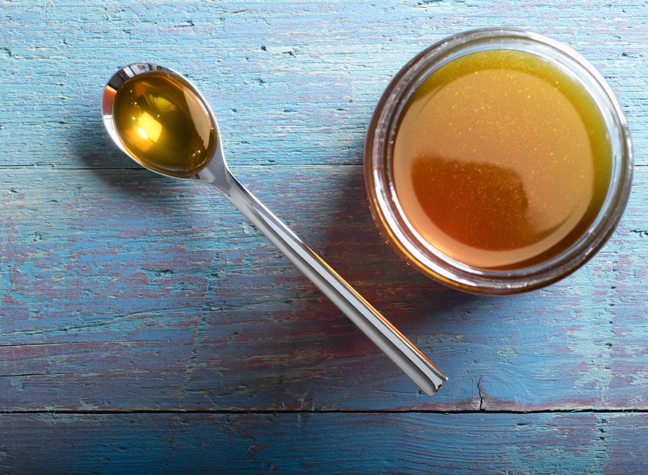
Its lowglycemic index(or GI) has seen agave embraced by the food blogger set, Sarah Jackson, company nutritionist for Mitchells & Butlers, tells us. "That's true - the glucose levels are low - but the fructose is very high, so I avoid it."
Granola
Thought cereal was the healthy option? Think again. Granola "may be a nice treat for a Sunday brunch" (and look good on Instagram), but it's often loaded with sugar. "I would not recommend it as a daily breakfast cereal," Sarah advises. Perhaps you should take a tip from Liz and opt for bacon and eggs instead...
Cereal bars and breakfast biscuits
Yes, some of them may be ‘approved by nutritionists' or carry health claims, but Sarah would still encourage you to think twice before picking one up, pointing out that a single breakfast biscuit may contain 11g sugar, whilst a cereal bar may pack 13g. "That is a lot of sugar to consume before you have even started work!"
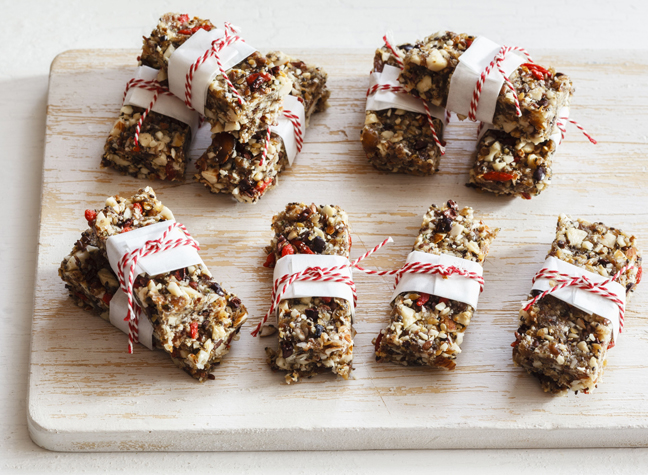
But they're not necessarily bad news. Charlotte, who also approaches them with caution, adds that, "there are some good options out there, and that means being savvy with thenutrient paneland the ingredients list to see if the sugars are naturally occurring or if they've been added."
Raw food energy balls and bars
Surely we're safe with those cold-pressed, paleo, raw vegan fruit and nut bars beloved of bloggers everywhere? Sarah occasionally opts for a homemade version to provide her with a quick post-work, pre-workout sugar boost, but says she would not encourage her clients to buy them. "They tend to contain high-sugar fruits like raisins and dates," she explains. "Dates contain approximately 5 times more sugar per 100g than bananas - and bananas are a lot cheaper!"
The date pastes, syrups and fruit purees sometimes found in these kinds of snacks still count as ‘free sugars' - the kind the government is urging us to cut down on, Charlotte warns. "However, they do often come with plenty of fibre, protein and other nutrients, which you wouldn't get in a typical chocolate bar. So they aren't necessarily healthy options, but there are benefits to choosing them as a treat."
Coconut oil
Sarah does, on occasion, use coconut oil to flavour dishes, but tells us that "replacing a perfectly good rapeseed oil with coconut oil for everyday cooking is a no-no for me. Coconut oil has 87g saturated fat per 100g compared to rapeseed oil at 7g per 100g. Why make a healthy meal and add 12g of saturated fat in one spoonful before you've even started?"
Fat-free products
That doesn't mean we should go out of our way to avoid fat, though. "Flavoured fat-free or low-fat yoghurts tend to be high in sugar," Sarah cautions. "I always opt for natural yoghurt, which contains half the amount of sugar, and add fresh fruit for extra taste."
Gluten-free foods
An increasing number of us is opting to go gluten-free but, according to our nutritionists, unless you're coeliac, or suffer from a gluten intolerance, it's unlikely to do you any good. "I am yet to come across a gluten-free cake that is healthier than a cake containing gluten," Sarah tells us. "Gluten-free bakery products can even be higher in sugar, fat and salt, which is often added to improve the texture and taste."
"I am a coeliac, but I avoid heavily processed foods, even if they are gluten free," Liz adds.
The Foods Nutritionists Adore...
Cheese
"Cheese is a nutrient-dense food that gets a bit of a bad name for its fat and salt content. But in moderation, it's a good addition to a healthy diet," Charlotte affirms. "I'd usually go for a 30g portion, which goes surprisingly far when grated! I'm a sucker for Cheddar, but I also like adding feta to dishes and crumbling Cheshire cheese into salads."
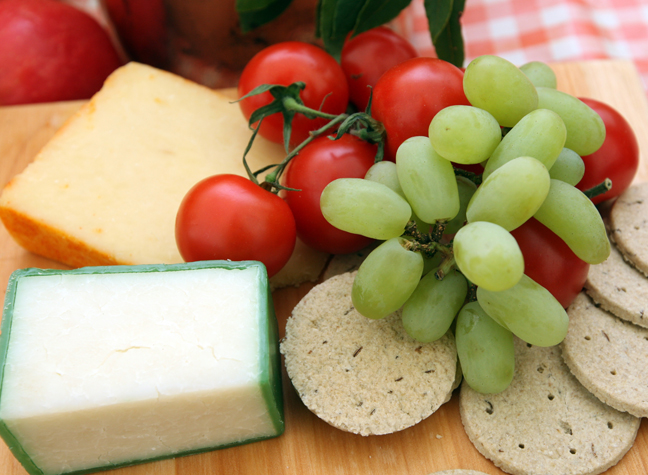
Nicola also admits to being "partial to a bit of fruit-laden Stilton with crackers," whilst Sarah, who also loves to snack on "a little cheese with wholegrain crackers and grapes," reassures us that, "eaten in moderation and as part of a balanced diet, it contributes to your calcium and vitamin B intake!"
Nuts
"Nuts also tend to get a bad reputation for their fat content, but research shows that when we add a moderate portion into our diet, we don't actually gain weight, and may even benefit," Charlotte, who tends to reach for walnuts at breakfast time, cashews and pistachios for on-the-go snacking and almonds and peanuts when cooking, tells us. "Nuts are a great source of vitamins, minerals and fibre, and make a perfect swap for typical ‘at work' snacks like crisps, cake and biscuits."
Liz, meanwhile, eats "lots of peanut and nut butters, but they must be 100% organic".
Pizza
"Carbohydrates, dairy, vegetables and protein all in one meal is a big tick from me," Sarah enthuses. "Pizza is one of my favourite quick meals and great for sharing alongside a big bowl of salad. However, when I say ‘pizza', I mean a homemade version, either on a wholemeal wrap or a thin stonebaked base."
Burgers and chips
Liz picks ethically sourced bacon and eggs and homemade burgers and chips over processed products purporting to be the next big thing in health. "I have seen a massive rise in vegetarian, paleo and vegan foods, but they are getting more processed," she says. "To me, the point is to eat naturally to help my health in a way that does not harm the environment, so my grandchildren still have a planet to live on. Surprisingly, it works out more cost effective as you buy what you need and it's good quality, so you eat a lot less and feel satisfied."
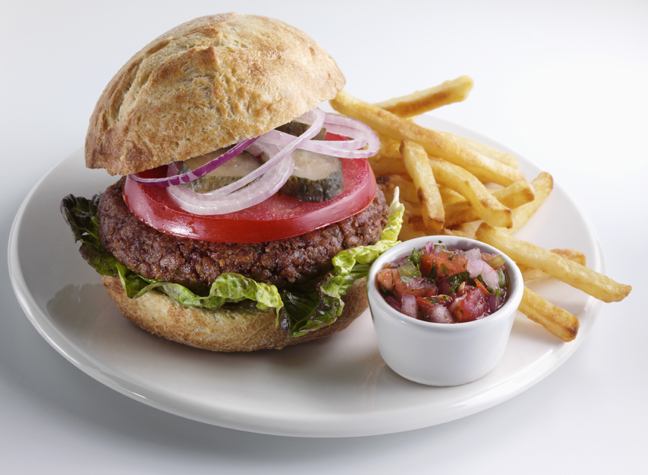
Claire Baseley ofCLB Nutritionis another chip fan. "I think all foods can fit into a healthy diet, and it's important to include treats to make it sustainable," she tells us. "I don't really eat fast food though, because I'd rather indulge with a nice steak and chips!"
Curry
Sarah makes Thai curry "at least once a week," she tells us. "Throw in lots of veggies and protein and serve with wholegrain rice and it's the perfect dish for a cold winter's night. Plus, it's great for freezing and you only need to use one pan!"
Sweets
But is there a place for sweet treats? Absolutely, says Nicola, who tells us that she "will have a handful of fruit jellies like Jelly Snakes or Jelly Beans".
Hot desserts
"I try very hard to balance my intake of more indulgent foods and drinks," Nicola tells us. "I mostly eat them as a treat, so not regularly. That said, I absolutely love apple crumble and custard, roly-poly, treacle pudding, spotted dick, sticky toffee pudding... you get the drift!"
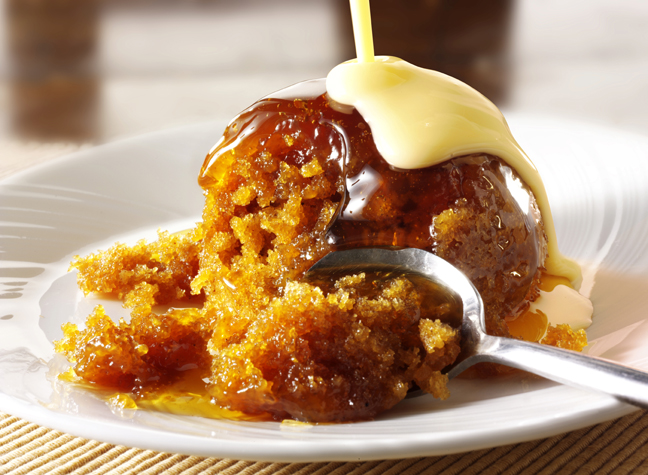
Chocolate
One thing all our nutritionists seem to adore? Chocolate. "Cocoa has been proven to have a range of health benefits, in particular with cardiovascular diseases," Sarah explains. "Note this is cocoa, not chocolate! I do love chocolate, but with the health benefits being in the cocoa - and not the added sugar and fat - I tend to go for chocolate bars which contain at least 70% cocoa." Claire says she eats chocolate "most days", but tries to stick to "just a square of dark chocolate after dinner."
Not a fan of the dark stuff? Don't despair - you're in good company. "I absolutely adore milk chocolate - especially Cadbury's!" Nicola tells us. It's all about moderation, after all...
-
 Weekly horoscope: 2 astrologers' predictions for 21st - 27th April 2025
Weekly horoscope: 2 astrologers' predictions for 21st - 27th April 2025Read your weekly horoscope from Sally Trotman and Penny Thornton who reveal what this week holds for every star sign on love, family, career, and more
By Penny Thornton
-
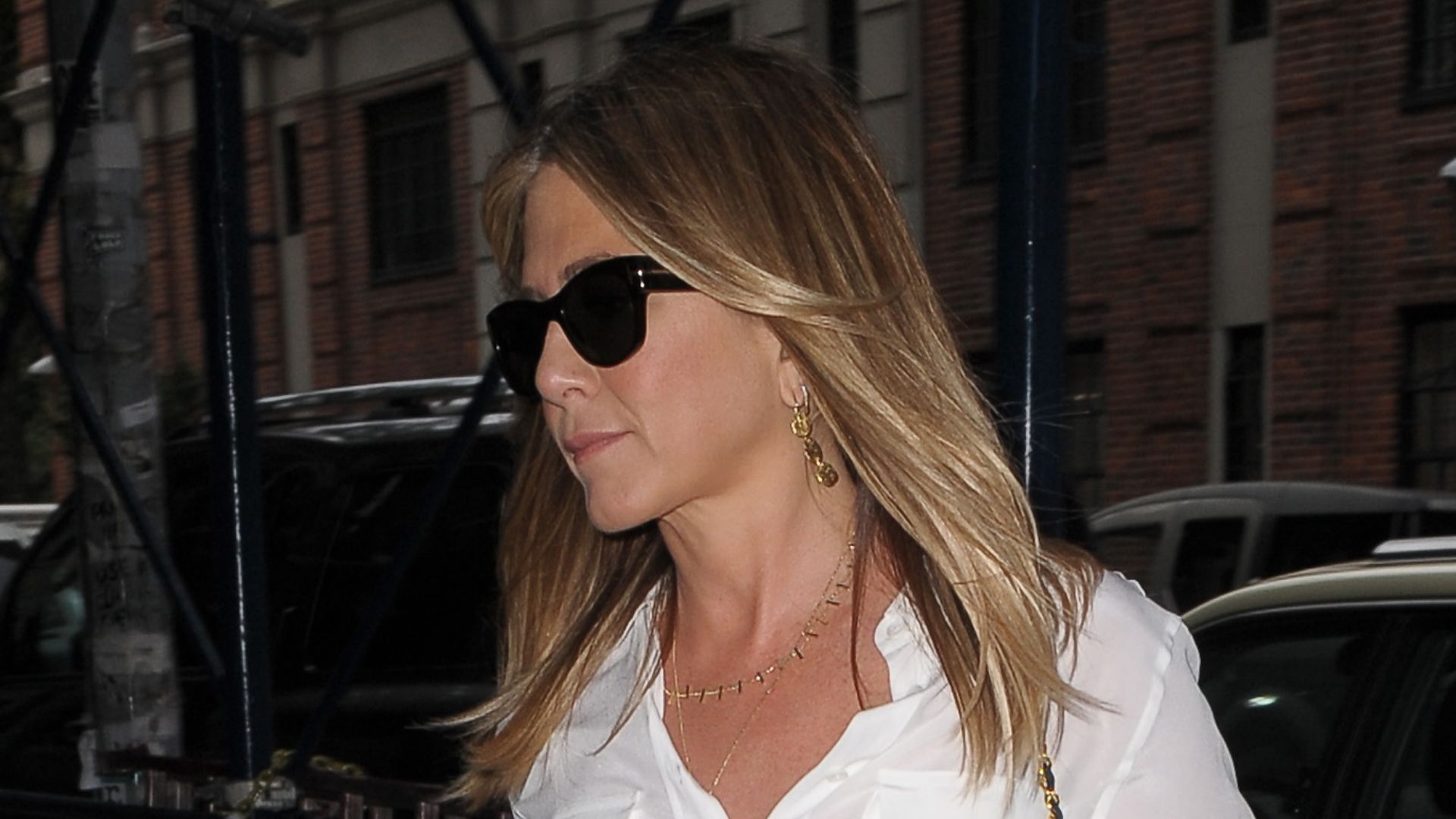 Jennifer Aniston loves these leg-lengthening jeans - when styled with wedge espadrilles and a white shirt it's a timeless look
Jennifer Aniston loves these leg-lengthening jeans - when styled with wedge espadrilles and a white shirt it's a timeless lookHer skinny flares from 2016 look just as fresh now - and they're making me rethink my beloved baggy barrel leg jeans
By Caroline Parr